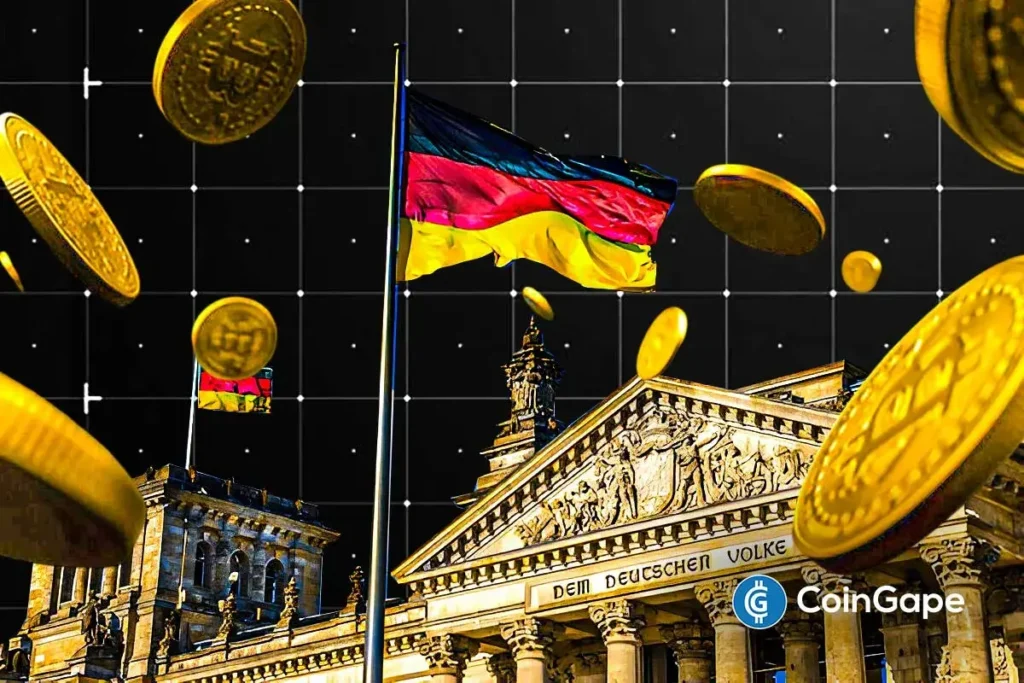Unclaimed Bitcoin and Germany’s Digital Asset Dilemma: What Lies Ahead?
In a striking revelation by Arkham Intelligence, a substantial cache of over 45,000 Bitcoin (BTC)—valued at nearly $5 billion—remains dormant, linked to the infamous Movie2K piracy case. This finding raises critical questions about how the German authorities manage seized digital assets and their overall approach to Bitcoin reserves. As blockchain analytics continues to reveal the complexities of digital currencies, this situation shines a light on the intersections of law enforcement, finance, and public policy.
The Background: Movie2K and Dormant Bitcoin
During its peak in 2013, Movie2K was a prominent film piracy platform, leading to significant legal action against its operators. Following their arrests in 2019, nearly 50,000 BTC were surrendered by the operators to German authorities, who subsequently liquidated this Bitcoin for around €2.64 billion ($2.89 billion). However, Arkham’s discovery of an additional 45,000 BTC stored across over 100 wallets, inactive since 2019, raises concerns about whether the German law enforcement effectively dismantled the illicit network’s financial holdings. The initial report did not mention this additional Bitcoin, casting doubt on the thoroughness of the seizures and subsequent asset sales.
The Sale of Seized Bitcoin and Financial Implications
The German authorities sold the seized BTC at an average price of $57,900 from June to July 2024. This decision, motivated by the fear of a significant drop in Bitcoin’s value, has since been scrutinized. With Bitcoin’s price soaring to an all-time high (ATH) above $123,000, it’s clear that the liquidation occurred at a suboptimal time, leading many analysts and critics to argue that the government missed an opportunity for substantially higher returns. Critics contend that the proper management of these digital assets could have provided Germany with a robust financial cushion, prompting calls for a reassessment of asset management strategies in the context of volatile cryptocurrency markets.
Voices of Critique and Sovereign Reserves
In light of this recent revelation, there’s growing pressure on the German government to reconsider its stance on seized Bitcoin. Lawmaker Joana Cotar has publicly advocated for the establishment of a sovereign Bitcoin reserve strategy, suggesting that Germany could leverage confiscated cryptocurrencies as revenue-generating assets instead of treating them as disposable. Her vision places Germany amongst the ranks of nations like Ukraine and the United States, emphasizing how governments can benefit from integrating Bitcoin into their financial frameworks while reaping potential rewards in an evolving digital economy.
The Skeptics and Market Impact
Notably, Bundesbank President Joachim Nagel has expressed skepticism towards Bitcoin as a viable option for national reserves, drawing comparisons to the infamous Tulip Mania of the 1600s. This hesitance illustrates Germany’s cautious approach in contrast to countries such as El Salvador, which actively integrates Bitcoin into its national economic strategies. As known, the latest moves by El Salvador to secure its Bitcoin reserves against quantum threats reflect innovative thinking in managing digital assets, something that Germany has yet to fully embrace.
The Future of Dormant Bitcoin: Legal and Technical Hurdles
The discovery of the additional 45,000 BTC raises significant questions regarding the future of these holdings. While they appear to be under the control of Movie2K’s operators, the dormant nature of these wallets complicates potential seizure efforts by German authorities. Legal and technical challenges could impede the recovery of these assets, posing a quandary for policymakers as they ponder the implications of attempting to liquidate such a large sum. Furthermore, prior disposals of Bitcoin by Germany led to notable market volatility, prompting concerns that any future attempts could similarly disrupt the Bitcoin ecosystem.
Conclusion: A Call for Informed Policy and Strategic Asset Management
The saga surrounding Germany’s dormant Bitcoin continues to unfold, highlighting the need for comprehensive strategies in managing seized digital assets. This situation invites a broader conversation about the role of cryptocurrencies in public policy and government finance. The interplay between law enforcement, market forces, and evolving public sentiment towards Bitcoin presents both challenges and opportunities. It remains to be seen whether Germany will shift its approach to embrace the potential of cryptocurrencies in the global economy or continue to adopt a cautious stance, which may ultimately lead to lost financial opportunities. As interest in Bitcoin and digital currencies grows, countries worldwide must navigate these waters to ensure responsible and impactful asset management.


